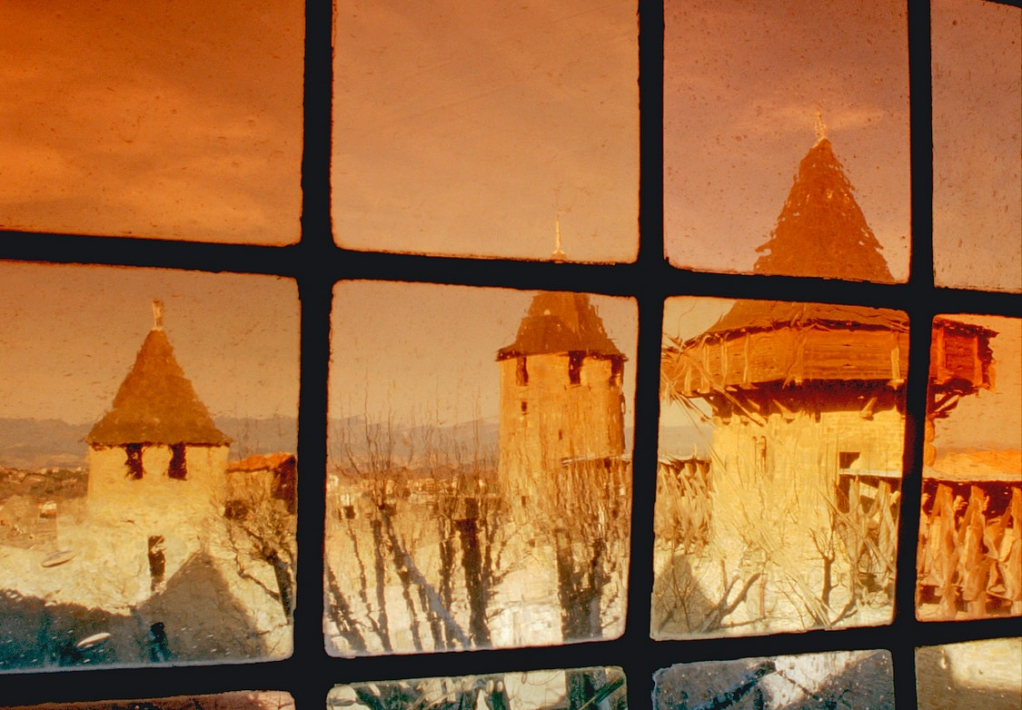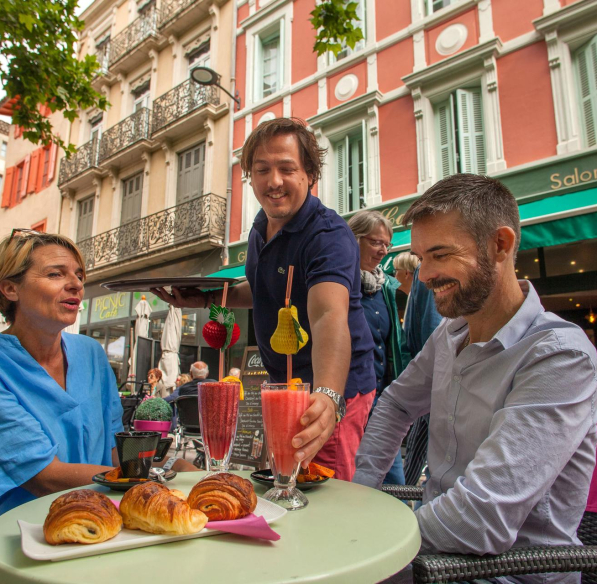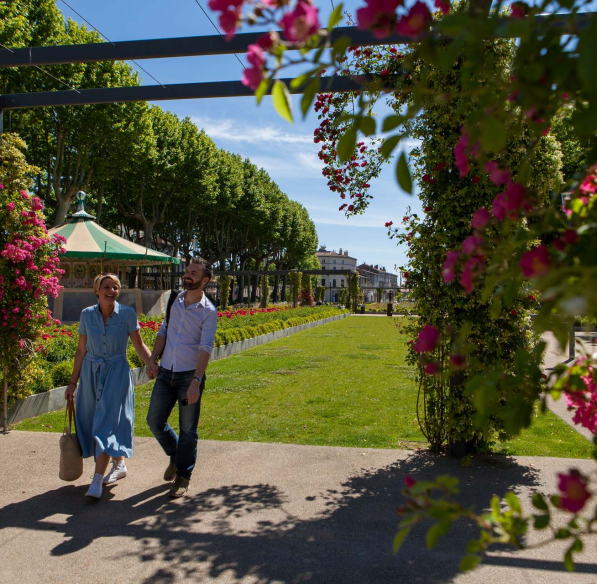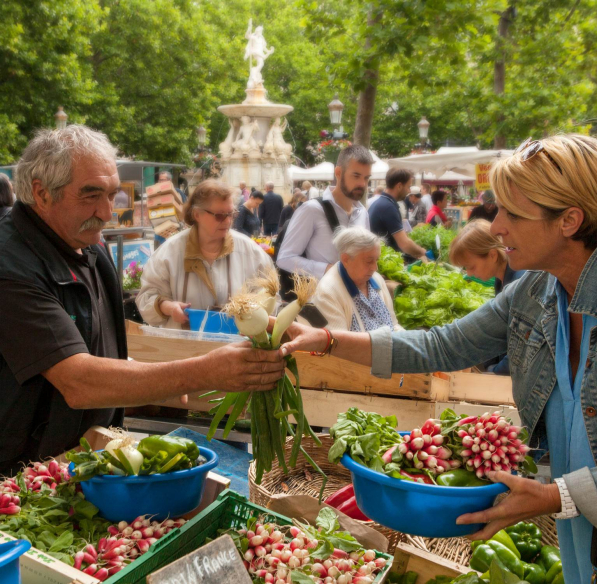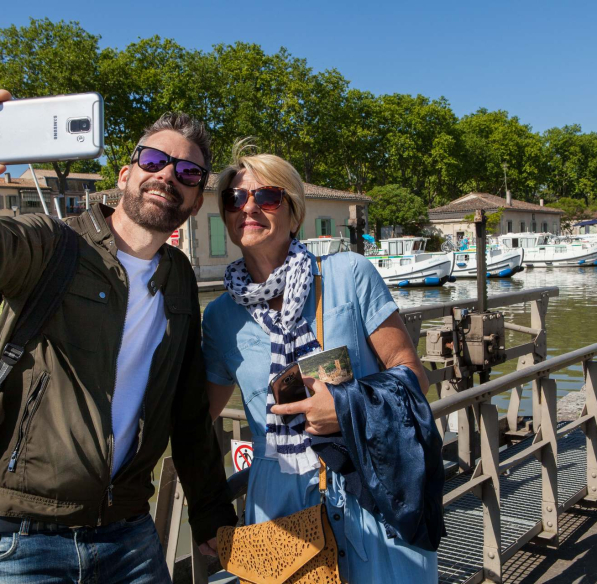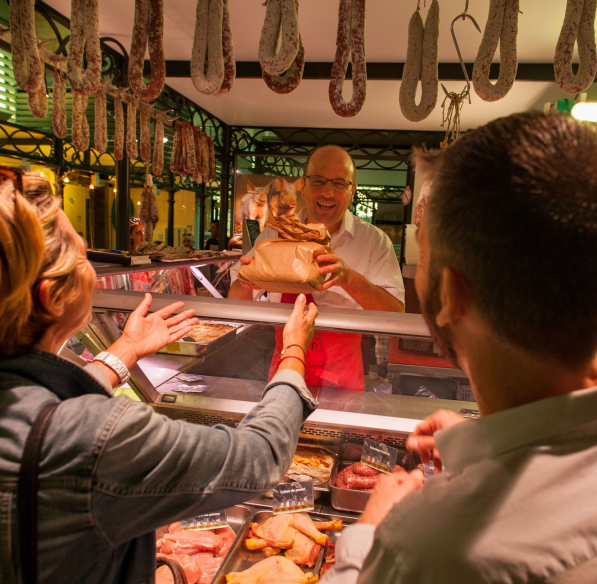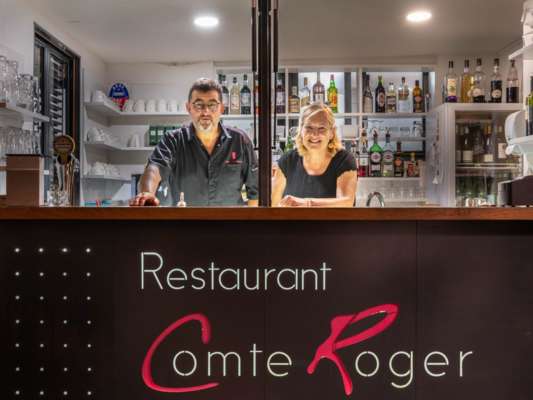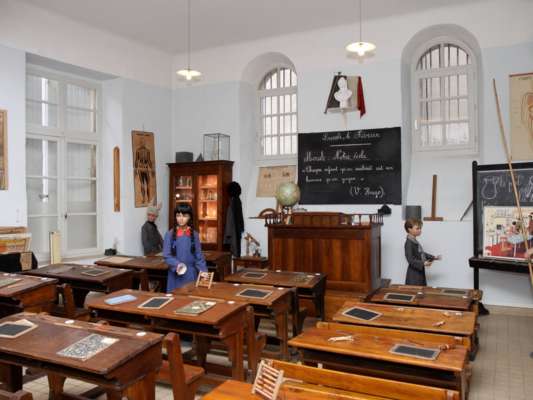Carcassonne has existed for nearly 2,500 years. Over the centuries it has been a Roman villa and a medieval viscountcy under the Trencavels dynasty. It has fallen to the terror of the crusades, it has been destroyed, rebuilt, extended and fortified. It has been abandoned and later saved from destruction, before eventually being restored in the 19th century under a large-scale project undertaken by Viollet-le-Duc. It joined the UNESCO heritage list in 1997.
Each period of its history has left traces on the walls of this ancient Citadel, offering visitors a chance to admire a life-size history book!
The Cite of Carcassonne
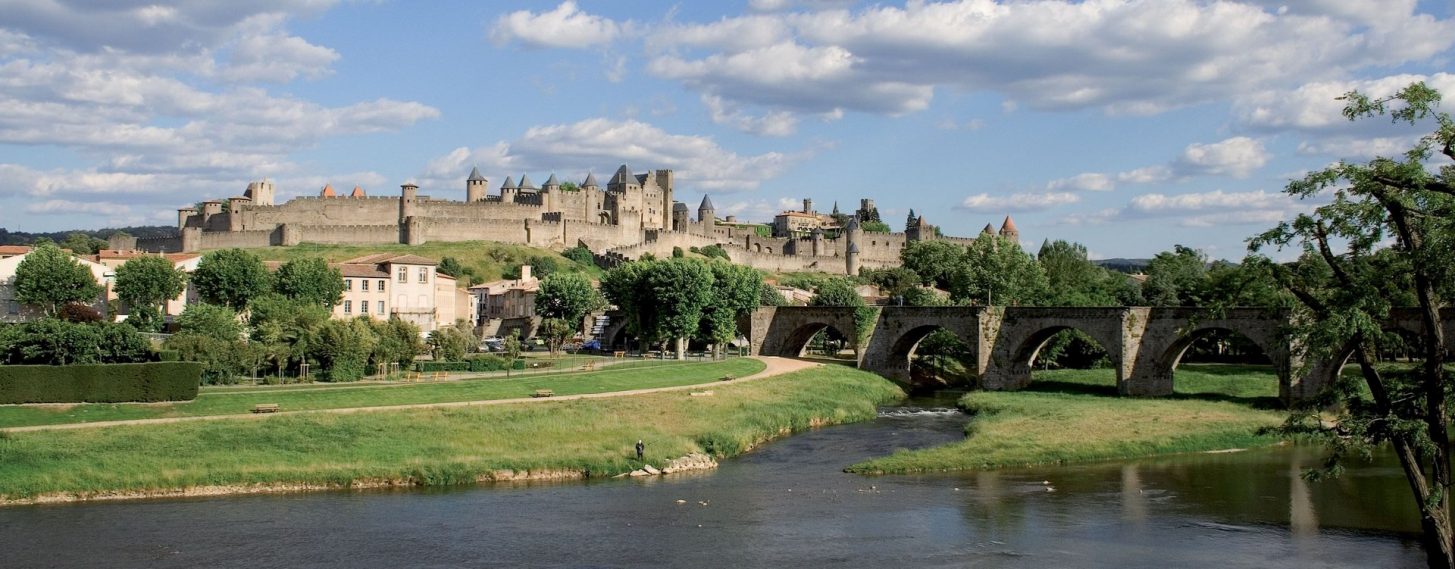
A spectacular sight!
Guided tours are available for history buffs, but the Cité reveals its riches to any unsuspecting visitor who takes the time to wander through the narrow medieval streets and let their inner child become a knight or a damsel!
There are plenty of places to eat, whatever your budget, and even to stay overnight within the citadel walls.
There’s no shortage of activities, whatever the time of year: Carcassonne festival, summer knights’ tournament, medieval market, winter procession by torch light and, of course the famous 14 July firework display and bonfire! Legendary!
Technical form
Take the children
For the whole family and in all seasons
Average duration
Allow a full day to visit properly, including the castle
Admission fees
Free access to the Citadel, fees apply for the Counts’ Castle and the rampart walk.
Heritage
The site was added to the UNESCO World Heritage of Humanity list in 1997.
A troubled history
Did you know?
The legend of Dame Carcas:
the town of Carcassonne owes its name to a smart princess…
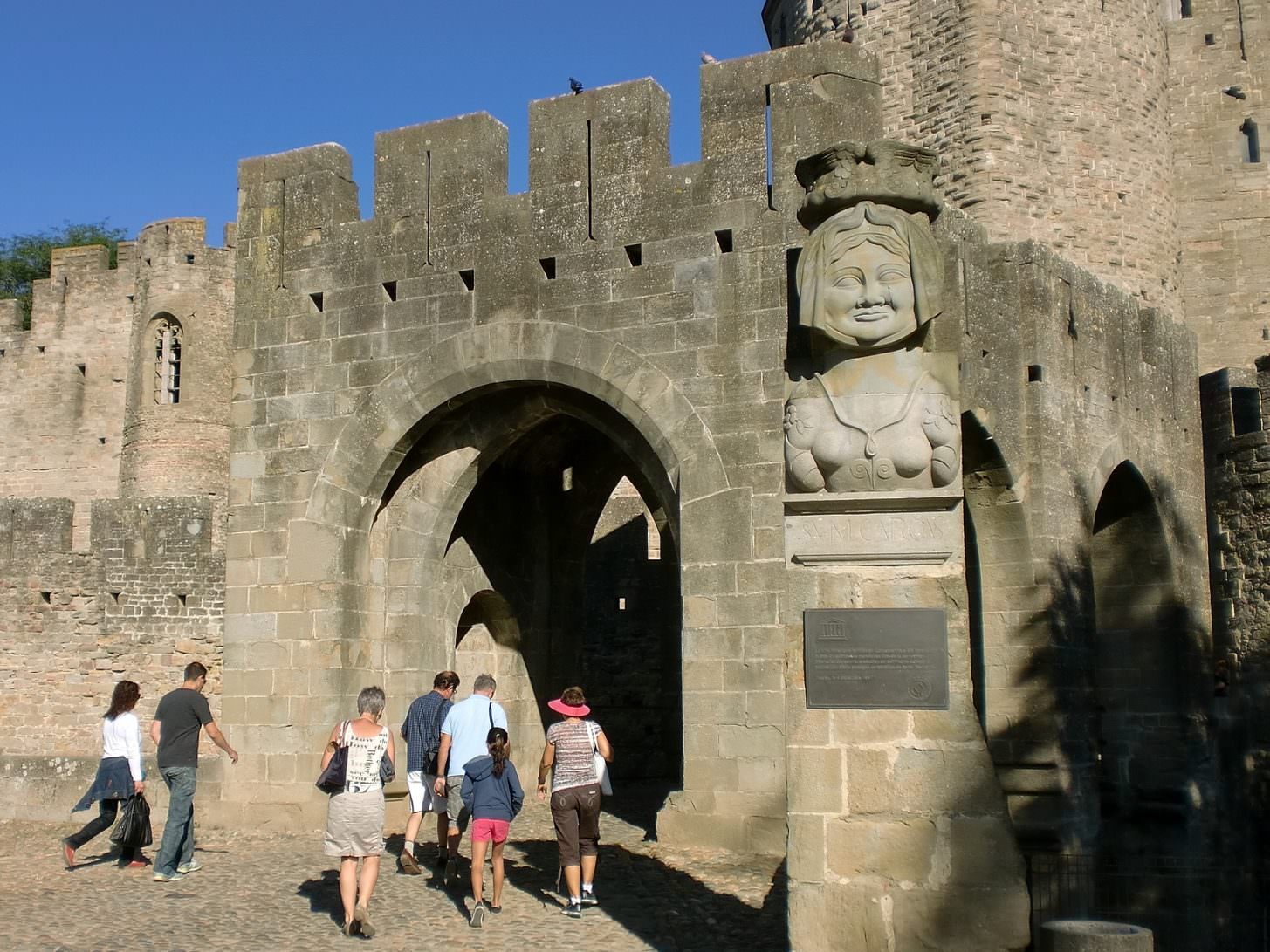
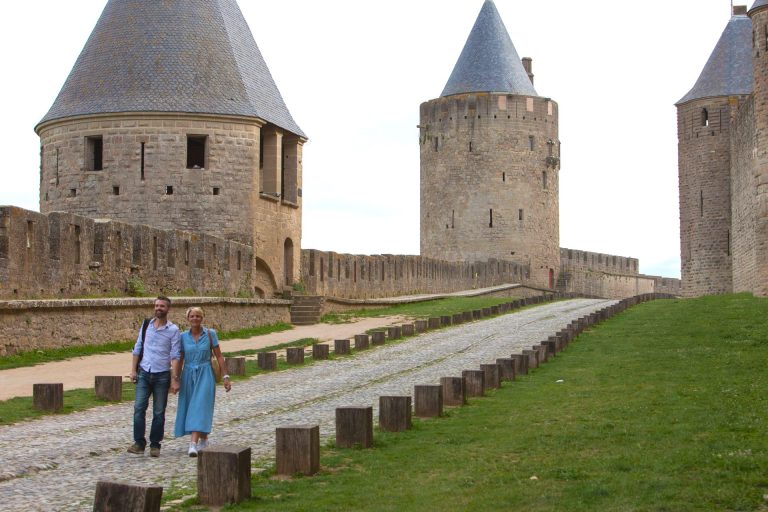
The ramparts
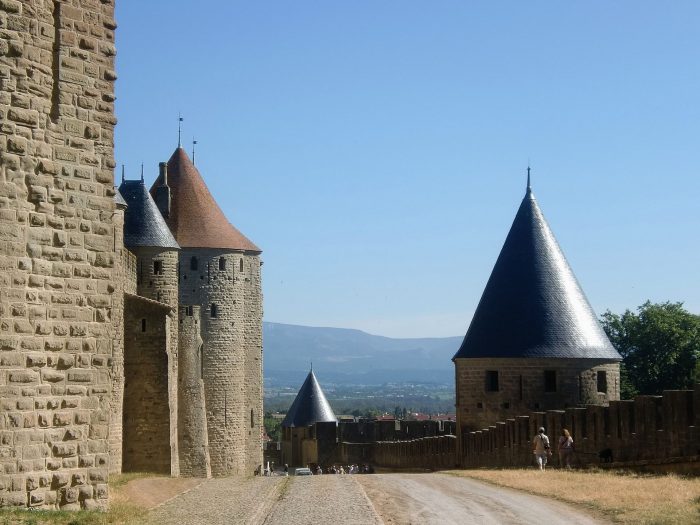
Bailey and rampart walks…
Before entering the Citadel, visit the Bailey, a large open space between the two rampart walls. You’ll get a feel for the monument’s sheer size and admire the architecture dating back 2,000 years, from the medieval Gallo-Roman towers to the walls that were restored during the 19th century. There are beautiful views over the lower town, the Montagne Noire and the Pyrenees!
The Counts' Castle
The palace of the Trencavels viscounts really is a “fortress within the fortress”.
Nowadays, it houses a museum, with sizeable collections and various remains from the Citadel and the surrounding region, including steles, sculptures, sarcophagi, wall paintings, statues, etc.
Nowadays, it houses a museum, with sizeable collections and various remains from the Citadel and the surrounding region, including steles, sculptures, sarcophagi, wall paintings, statues, etc.
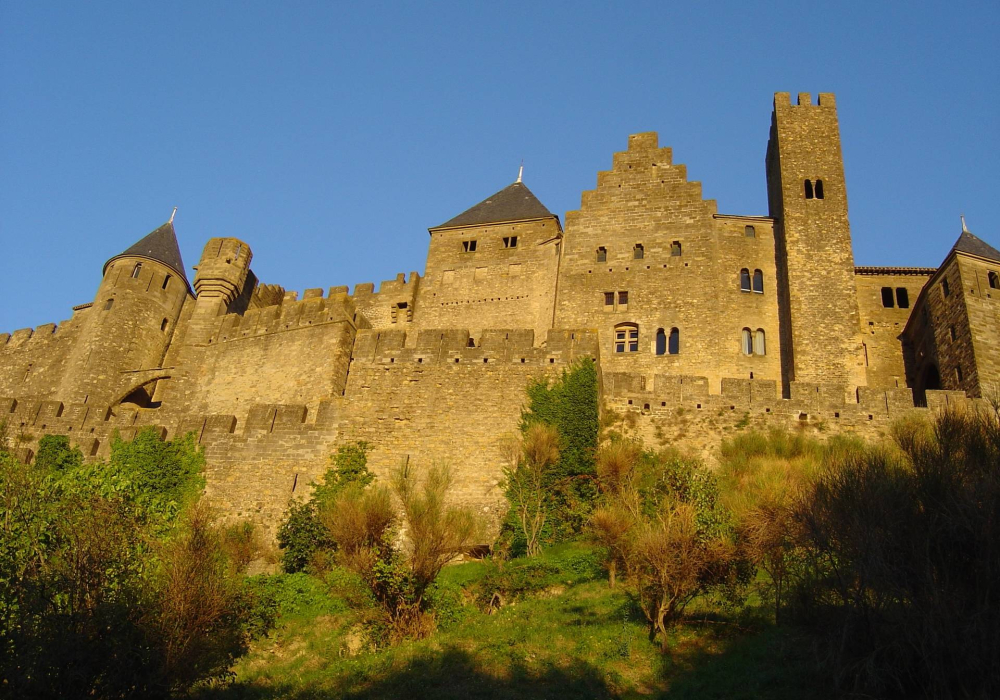
A top favourite
The tour begins with a film projection on a giant screen which explains the history of the castle and how it has evolved. English subtitles
For anyone visiting the Citadel, the castle tour is not to be missed ! Between towers, staircases and wall walks, there’s something to discover in every nook and cranny, new viewpoints from which to admire this monument, and plenty of hard facts on the highly elaborate defence systems set up by our ancestors to protect their town! Total immersion in the Middle Ages!
The tour also includes a rampart trail offering exclusive panoramic views over the region and the heart of the Citadel.
Discovering with applications
To enhance your visitor experience, you can follow in the footsteps of the Cathars with our mobile apps:
"Guide to Cathar Country"
,
pour une visite approfondie et interactive du site,
"Castrum"
,
an amusing app that makes culture fun.
An invitation to further explore the main sights of Cathar Country.
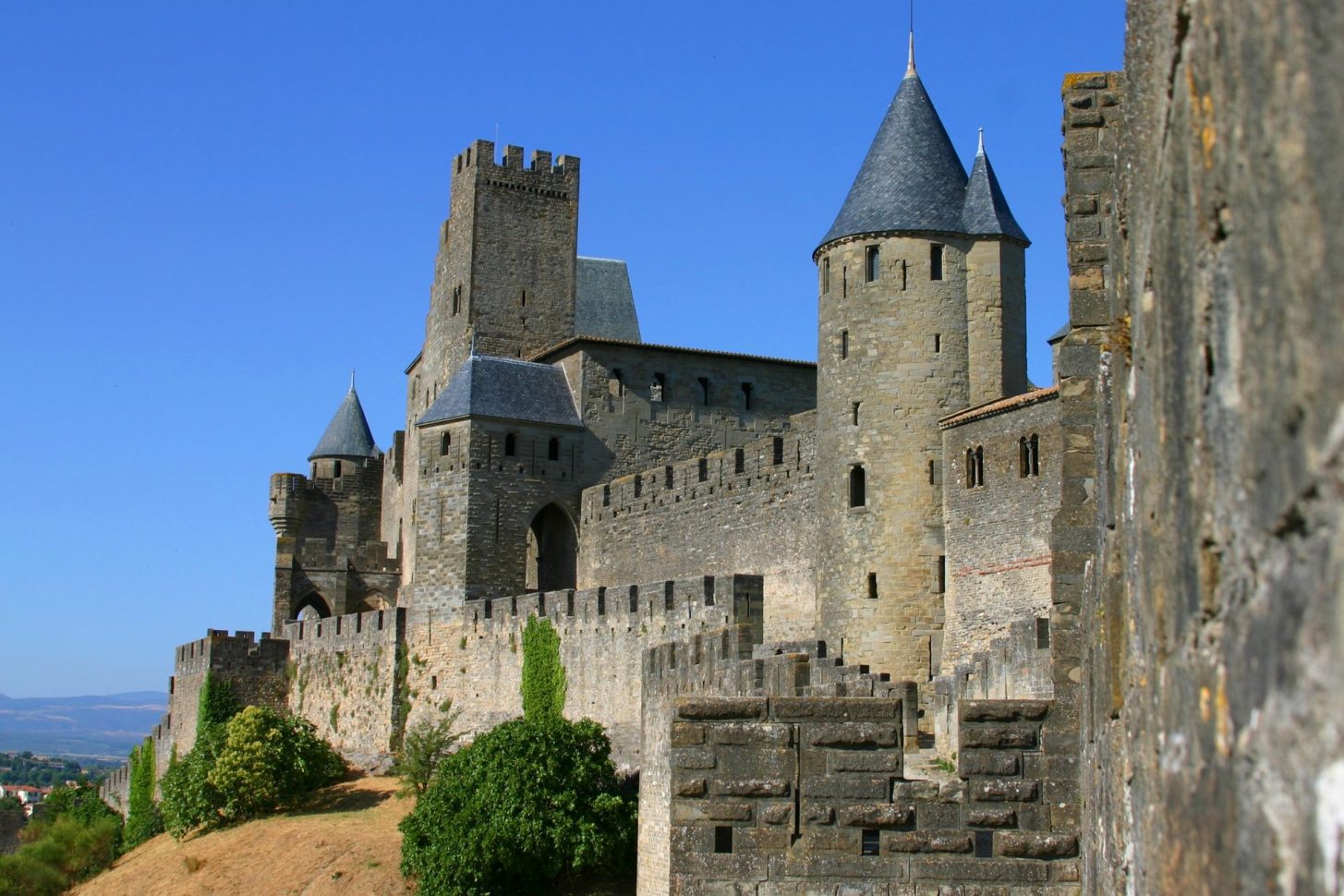
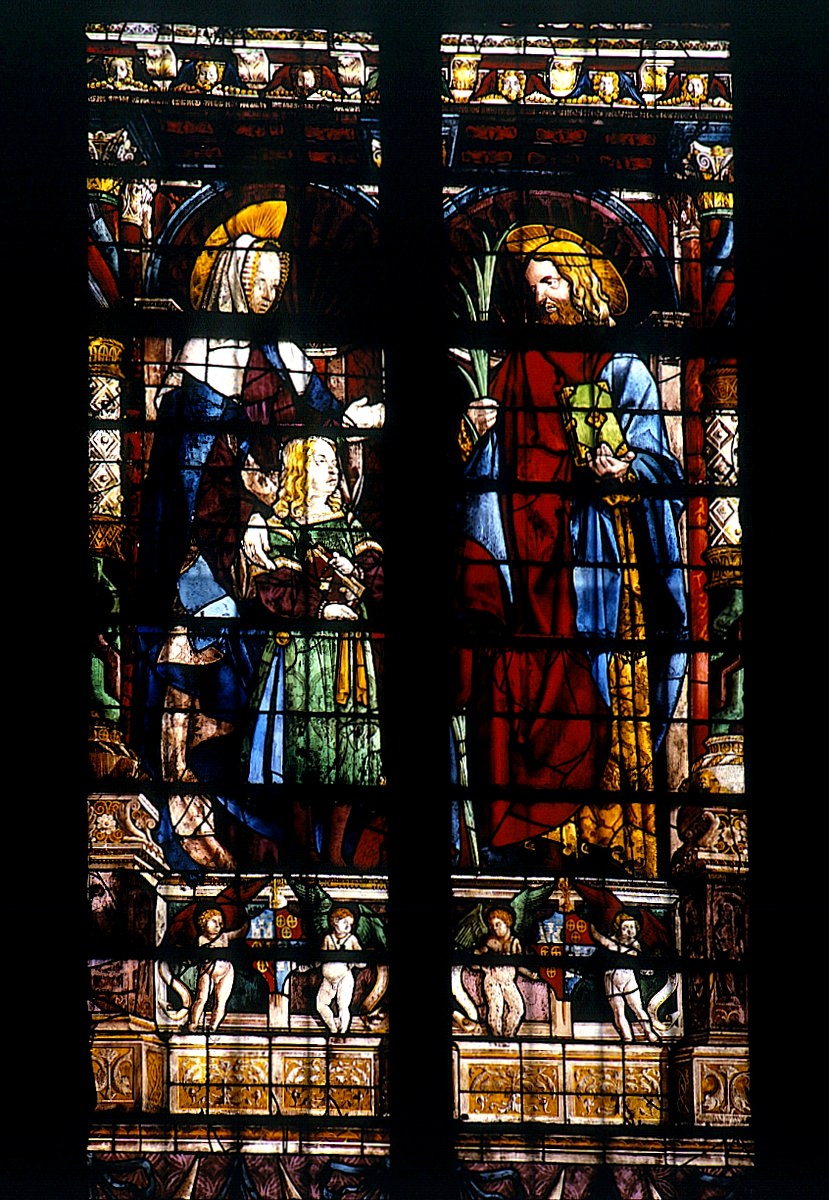
It was Pope Urbain II who, in 1096, came to Carcassonne and blessed the first stone laid for the construction of the cathedral. Its origins are indeed ancient.
In the early 19th century, it yielded its status to the cathedral of Saint Michel located in the lower part of Carcassonne.
It achieved its honorary status of Basilica in 1898. It is nonetheless one of the town’s key monuments and an absolute must-see.The juxtaposition of the Roman and Gothic parts is surprising, yet harmonious. The basilica boasts the most beautiful stained glass windows of the South of France.
At a stone’s throw, the lower town
Bastide
Saint Louis
Besides the medieval Citadel, Carcassonne also includes the lower town, or Bastide Saint Louis, a lively district which you can easily reach on foot by crossing the Pont Vieux, a medieval bridge that straddles the River Aude and offers a panoramic view of the Citadel.
There you’ll discover an abundance of sights (private mansions, churches and chapels, the market hall and Place Carnot where a market is held 3 times a week) and, above all, the Canal du Midi, another UNESCO World Heritage feature.
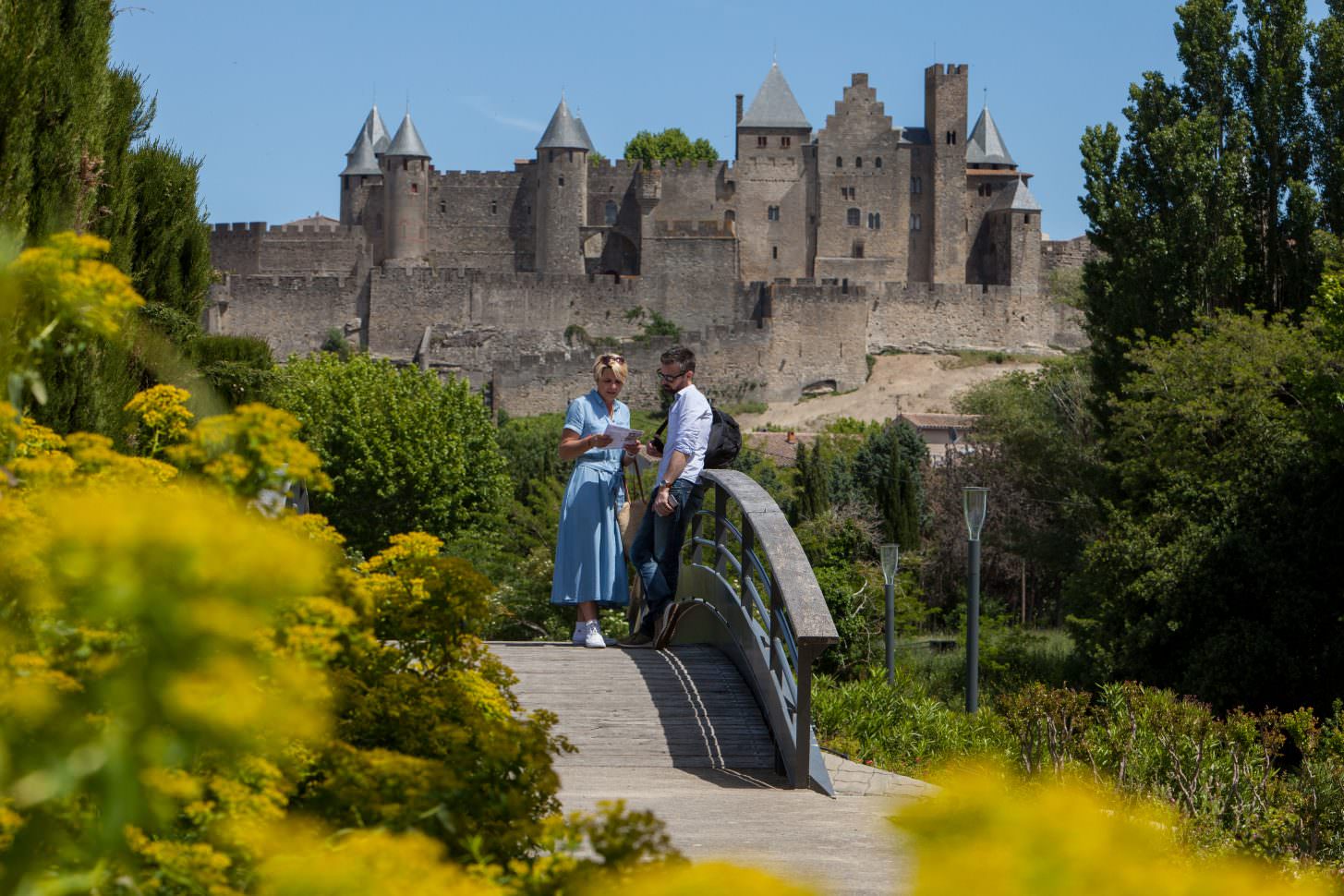
Find out more...
Besides its monumental status, the Cité of Carcassonne also offers a wide range of restaurants and accommodation. The luckiest visitors can even stay within the Citadel walls.
An invitation to enjoy some unusual tours – discover all tourist attractions and facilities in the town and the surrounding area.
Practical tips
Parking
There’s no shortage of easy parking, with pay car parks very close to the Cité.
Getting here
By car: via the A61 motorway, exit 24 (Carcassonne East, the nearest) or exit 23 (Carcassonne West).
By train: Carcassonne station, a 25 to 30 minute walk away. Taxis and public transport also available.
By plane: Carcassonne airport operates a number of links with the United Kingdom and Ireland.
What time of year?
The Cité can be visited all year round and each season adds its specific charm: in summer there are more visitors but there’s also more to do and more possibilities to enjoy a drink or a meal outside. The mild weather makes it pleasant to visit in spring and autumn. In winter, you may have the Citadel all to yourself and feel almost as if you’re in the Middle Ages!

